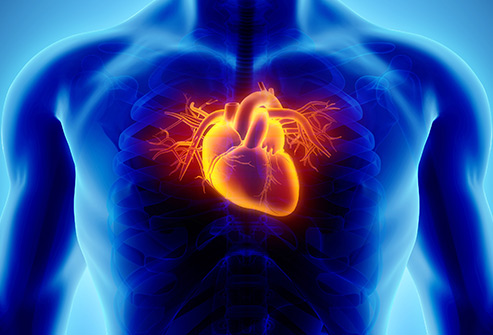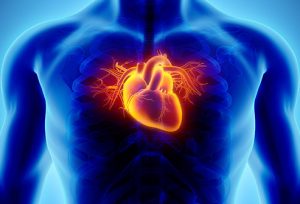What is Heart Failure?
Heart failure is a condition in which the heart is not able to pump enough blood throughout the body for its normal function. The cause of this can be either functional or structural disorder of the heart. Common causes of heart failure include cardiomyopathy, hypertension, heart valve problems and coronary artery disease. There is no cure for heart failure.
Types of Heart Failure
Heart failure is divided into many different types, but when classified according to the duration of symptoms, heart failure falls into one of two categories:
• Acute heart failure – Acute heart failure refers to cases in which new heart failure symptoms develop rapidly and in a short period of time. Acute heart failure may also refer to cases in which symptoms of previous heart failure have stabilized, but have later returned and become more severe in a short period of time.
• Chronic heart failure – When the doctor physical examination for chronic heart failure, they are looking to find out whether the patient’s symptoms and/or abnormalities in heart function have been present for an extended period of time.
Symptoms of Heart Failure
Heart failure produces symptoms and other complications when the amount of blood being pumped from the heart is insufficient in meeting the demands of the rest of the body. Symptoms may also arise due to excess salt and fluid retention.
Common symptoms of heart failure include:
• Shortness of breath (which is a key symptom of heart failure). Patients may also experience exhaustion during physical activity, fatigue, difficulty breathing or coughing when lying down, and may wake during the night due to shortness of breath.
• Patients may develop fatigue and muscle cramps when there is a reduced amount of blood reaching the muscles, making it difficult to carry out daily routines.
• Swelling may develop due to fluid and salt retention, which usually occurs around the legs and ankles. Additionally, heart failure patients may also develop fluid retention in the lungs, liver, or large intestine. Fluid retention can also occur in the abdominal cavity, causing discomfort, pain, and bloating of the abdomen.
Can stem cells help to treat heart failure?
With respect to the heart, stem cells have the ability to not only home into the damaged areas but also to initiate a cascade of biological events which both culminate in healing of the heart muscle. For example, animal studies have demonstrated that stem cell therapy will cause new muscle cells to be formed through stimulation of dormant stem cells that are already inside the heart muscle. In these studies, the administered stem cell also transformed into new heart muscle cells.
Which types of stem cells are used to treat heart failure and how are they collected?
At Cryo stem cell center, patients with different kinds of heart diseases use peripheral blood stem cell treatment. Since haemopoietic stem cells, mesenchymal stem cells, endothelial progenitor cells and natural killer cells can be obtained from peripheral blood and these cells can repair and renew the damaged blood vessels, cardiac muscle and increase the elasticity of the blood vessel wall. In this way, we can solve the different problems of the heart. Stem cells treatment is safe for any age and it can be undergone before or after the heart surgery.
Please click here for more information.





